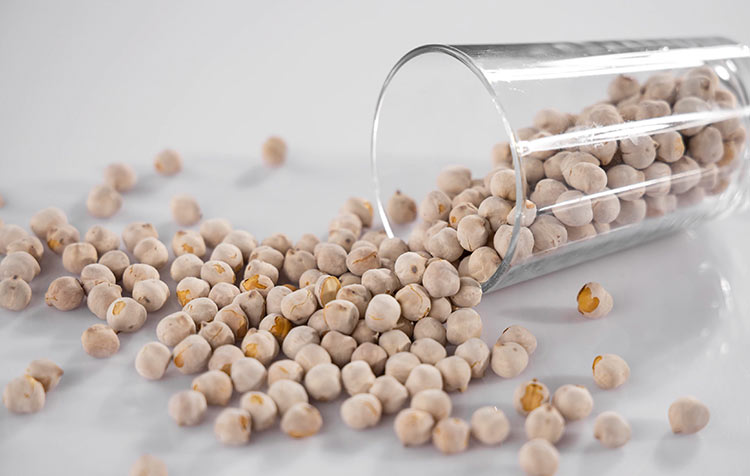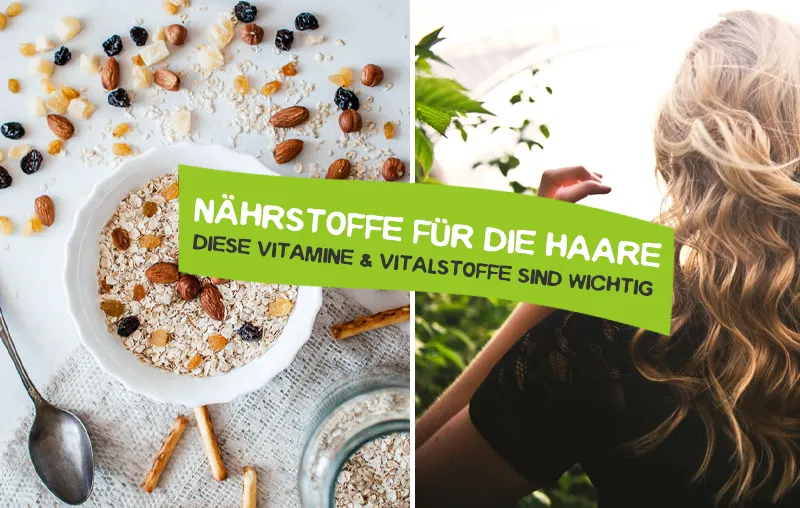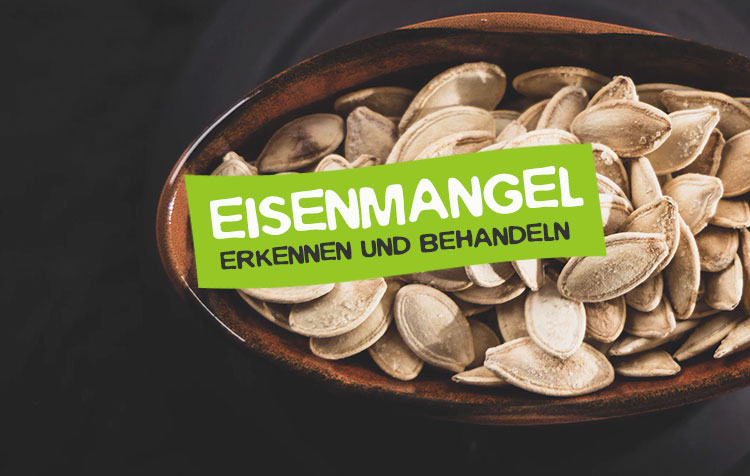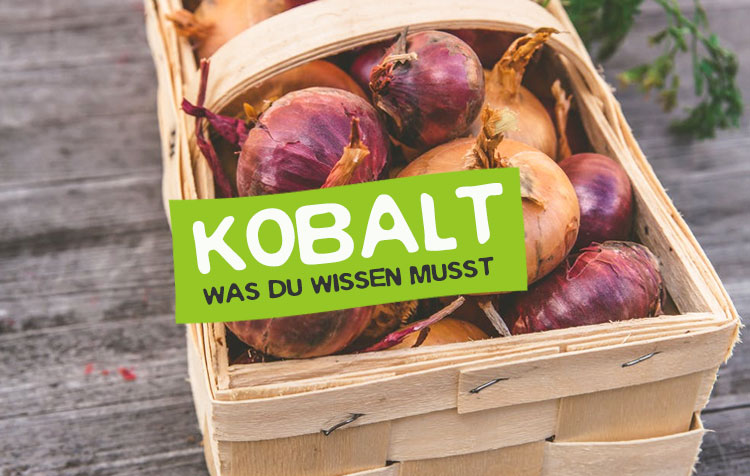You want to know more about biotin or vitamin B7? Then you've come to the right place! To begin with, I will summarize the basic information about the nutrient formerly known as vitamin H in a fact sheet.
Then I go more in depth and explain everything worth knowing about intake, daily intake, function, deficiency and excess, as well as good sources and supplements. Finally, I then provide valuable information on whether vegans and vegetarians should pay special attention to their biotin supply.
Here is in advance a short Table of contents for you:
Notice: This article is not a substitute for medical advice, but merely provides general information about biotin. Please consult your doctor if you feel unwell or want to prevent health problems with medical care.
Biotin PROFILE AT A GLANCE
Assignment: Water soluble vitamins
Synonyms: Vitamin B7, Vitamin H
Important for: Coenzyme of carboxylases, metabolism of carbohydrates, fats and protein, and cellular signal transduction1
Daily requirement: 30-40 µg/day from the age of 15.2,3,4
Overdose: No maximum feed set1,3,5
Deficiency symptoms: Among other things, disorders of growth, skin, hair and nervous system.
Food: Soybeans, oatmeal, brown rice, whole grain products,
Nutritional supplement: mostly as vitamin B complex
The absorption of vitamin B7
Biotin is a Water soluble vitaminwhich occurs in almost all foods. However, the amounts contained vary greatly. You will learn more about this in a moment in the paragraph on rich foods.
The Bioavailability of vitamin B7 depends on the source and is on average about 50 percent. Just like Iron, absorption increases when the supply status is low. The Preparation losses are kept within limits at up to 20 percent, since biotin is heat-stable.
Preparation Tip: As with all water-soluble vitamins, biotin passes into the cooking water when boiled in water. It is best to continue using the cooking water.
How much biotin do you need?
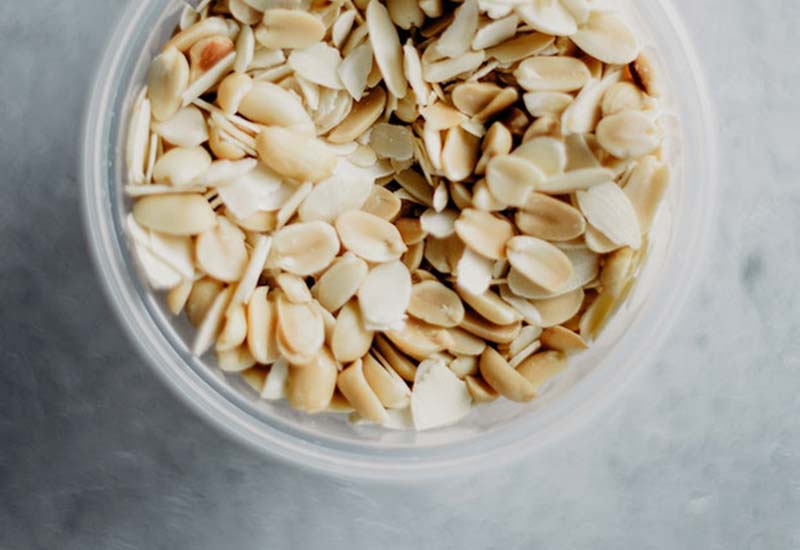
The European Food Safety Authority (EFSA) recommends a daily intake of 40 µg.4 From Office of Dietary Supplements a comparatively somewhat lower recommendation of 30 µg per day.3
The data of the German Society for Nutrition (DGE) are the same as those of the EFSA. In addition, guideline values for Children and teenagers contain2:
| Age | |
| 1 to under 4 years | 20 |
| 4 to under 10 years | 25 |
| 10 to under 15 years | 35 |
| 15 years and older | 40 |
Breastfeeding women an increase of 5 µg per day is recommended due to the increased demand. Pregnant women however, the three nutrition societies cited do not explicitly advise an increase in daily biotin intake.2,3,4
The function of biotin
Vitamin B7 plays a very central role for the Energy, amino acid and fatty acid metabolism. Furthermore, with B7 a Coenzyme is formed in the carboxylase.
Biotin is furthermore used for the cellular signal transduction, Gene Expression and DNA repair needs1 and is a crucial factor for hair health.6
The most important Functions of vitamin B7 short and to the point:
- Metabolism of carbohydrates, fats and amino acids
- Coenzyme
- Cellular signal transduction
- Gene Expression
- DNA Repair
Is it possible to take too much biotin?
There is no established limit for biotin intake to date because no toxicity has been found.1,3,5 Consequently, even extraordinarily high intakes of 20 mg of vitamin B7 are considered safe, so that overdosing is largely ruled out.1,3
Can there be a shortage?
A deficiency of biotin is extremely rare. A possible cause may be a Biotinidase defect which means that the vitamin cannot be released from proteins. According to EFSA, the average intake varies between 26 and 50 µg of vitamin B7 per day, so that basically sufficient amounts are supplied.4 This also confirms a DGE statement from 2012, in which Germany was described as "not a vitamin deficiency country".7
Other reasons for deficiencies may be excessive alcohol or cigarette consumption, as this inhibits biotin uptake and promotes biotin depletion.
A biotin deficiency ultimately manifests itself in certain Symptomssuch as disorders of growth, skin, hair, nervous system or movement problems and lethargy. Furthermore, the immune system can be weakened by a too low intake.1,3
Risk groups for deficiency: Smokers, alcoholics and people suffering from biotinidase deficiency.1,3
What foods are good sources of biotin?
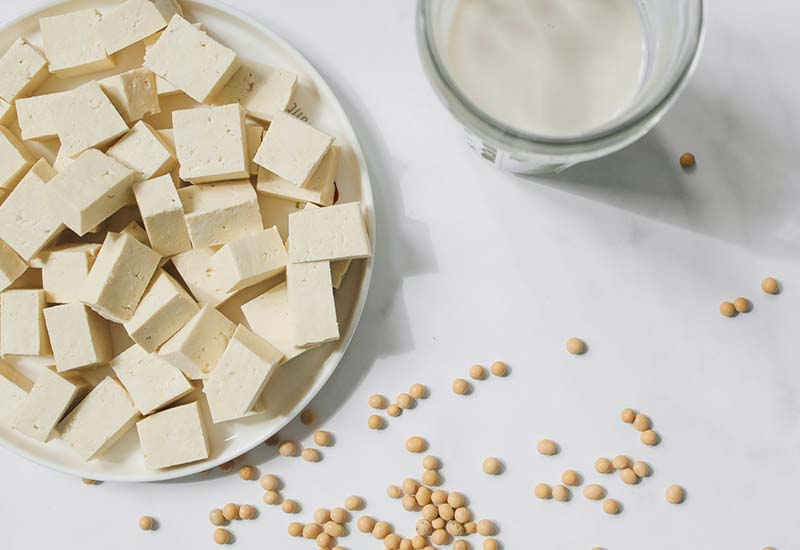
As already mentioned, most foods contain small amounts of biotin - but which sources contain the right amount of vitamin B7? You can get large amounts of the water-soluble vitamin, for example, from Whole grains, brown rice, nuts, soybeans and oatmeal Record
Here is an overview of the best Biotin sources:
- Yeast (200 µg per 100 gram)
- Dried porcini mushrooms (105 µg per 100 gram)
- Peanut butter (67 µg per 100 gram)
- Soybeans (60 µg per 100 gram)
- Edible bran (44 µg per 100 gram)
- Peanuts (34 µg per 100 gram)
- Oatmeal (20 µg per 100 gram)
- Natural rice (12 µg per 100 gram)
Do vegans get enough biotin?
A large part of the best sources of biotin are plant-based, so as a vegan you basically don't have to worry about getting enough vitamin B7. Of course, it's important that you eat a well-balanced diet and regularly consume Nuts and whole grain products in your diet. Consequently, vitamin B7 is also not included in the list of potentially critical nutrients in vegan diets published by the DGE.8
Are there good reasons to supplement biotin?
As a rule, supplementation with biotin is unnecessary. However, if you belong to the risk groups or have problems with your hair, for example, it may make sense to supplement biotin. Before doing so, you should have your blood serum levels tested by your family doctor to check how well you are supplied with vitamin B7.9
Since the water-soluble vitamins from the B-complex usually have similar functions, it makes sense to supplement biotin as a vitamin B-complex. A good one, vegan vitamin B complex in Capsules you get here*.
Biotin FAQ: The most frequently asked questions
What is biotin good for?
The body needs biotin for various metabolic processes, DNA repair, gene expression and cellular cell transfer.
How does a biotin mangenl show up?
A deficiency of vitamin B7 is manifested, among other things, by disorders of the nervous system, musculoskeletal system, as well as skin changes or hair loss.
Which vegetables contain biotin?
Vegetables contain comparatively less vitamin B7 than, for example, whole grain products or legumes. Vegetables that are particularly rich in biotin include tomatoes, carrots and spinach, for example.
How much biotin can one take?
Biotin has extremely low toxicity, which is why no maximum intake limit has been set by nutrition societies.
How much mg biotin for hair loss?
If the hair loss is based on a lack of biotin, intakes of 2.5 to 5 mg per day are recommended. It is best to supplement the intake with Vitamin E.
Biotin - The valuable beauty vitamin
Among other things, vitamin B7 plays a very crucial role in our metabolism as well as our skin and hair health - which is also why it is popularly known as the beauty vitamin. In contrast to the more critical nutrients, such as for example. Vitamin B2, Iron or ZincIn a balanced diet, the supply of biotin is rather unproblematic.
In addition to conscious nutrition, I have more ideas, such as. cold shower, much time at the fresh air or Meditationwith which health can be improved specifically. Feel free to use the comment function to send me a question or suggestion about vitamin B7.
All the best,

P.S.: The Nutrient database holds many more contributions - for example about Selenium, Omega 3 or Magnesium - ready for you. And if sustainability is your favorite topic, you should definitely check out the article Shape nutrition sustainably take a look. Have fun!
References:
1 Deutsche Gesellschaft für Ernährung e. V.: Selected questions and answers on biotin. https://www.dge.de/wissenschaft/weitere-publikationen/faqs/ausgewaehlte-fragen-und-antworten-zu-biotin/. [27.10.2021]
2 Deutsche Gesellschaft für Ernährung e. V.: Biotin, https://www.dge.de/wissenschaft/referenzwerte/biotin/?L=0 [27.10.2021].
3 National Institutes of Health. Office of Dietary Supplements: Biotin. Fact Sheet for Health Professionals, https://ods.od.nih.gov/factsheets/biotin-healthprofessional/. [27.10.2021]
4 European Food Safety Authority: Scientific Opinion on Dietary reference values for biotin, https://efsa.onlinelibrary.wiley.com/doi/pdf/10.2903/j.efsa.2014.3580 [27.10.2021].
5 European Food Safety Authority: Tolerable Upper Intake Levels for Vitamins and Minerals, https://www.efsa.europa.eu/sites/default/files/efsa_rep/blobserver_assets/ndatolerableuil.pdf. [27.10.2021]
6 Center of Health: Reverse Hair Loss, https://www.zentrum-der-gesundheit.de/krankheiten/haare/haarausfall-uebersicht/haarausfall-rueckgaengig-machen-ia. [27.10.2021]
7 A. Bechthold, V. Albrecht, E. Leschik-Bonnet, H. Heseker (2012): DGE Opinion: Assessment of vitamin supply in Germany. In: Ernährungsumschau 59 (2012), pp. 324-336. Online: https://t1p.de/5c5r. [27.10.21]
8 Deutsche Gesellschaft für Ernährung e. V.: Supplement to the position of the German Nutrition Society with regard to population groups with special nutritional needs, https://www.dge.de/wissenschaft/weitere-publikationen/dge-position/vegane-ernaehrung/?L=0 [27.10.2021].
9 Center of health: determine vitamin deficiency: the diagnosis, https://t1p.de/8drh. [27.10.2021]

